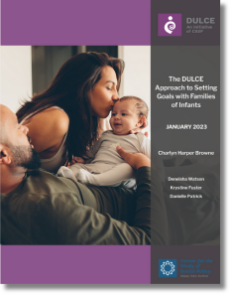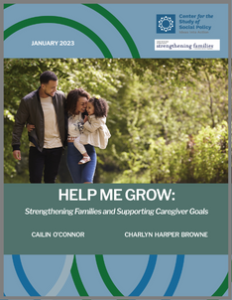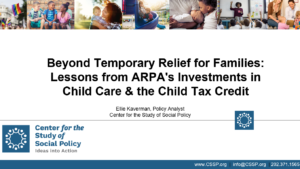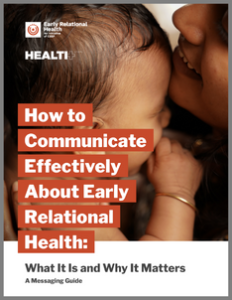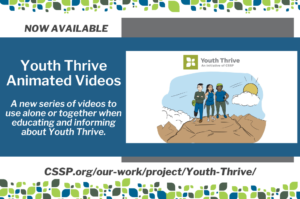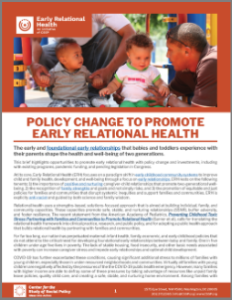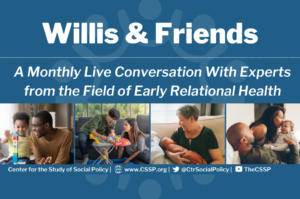CSSP engaged in a 12-month planning and implementation project focused on developing and pilot testing a collaborative goal setting process for families of infants that is derived from goal concordant care. This paper describes the initial success of this endeavor, including a description of and guidelines for the collaborative goal setting process, initial findings from pilot testing of the process, reflections about participants' experience of the process, and a list of draft training and technical assistance tools.
(19 pp)
